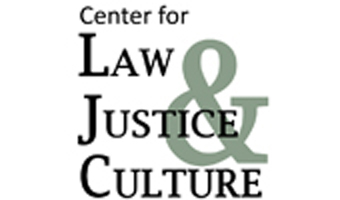The Center for Law, Justice & Culture is offering the following graduate courses on campus in fall 2019 for the MA in Law, Justice & Culture.
Students may complete the program across two semesters of coursework on the Athens campus.
The courses focus on the theoretical and methodological traditions of law and society studies; law and society perspectives across the disciplines; and training in legal research and writing.
Applications will be accepted on a rolling basis until the fall class is filled. Apply here.
Please contact CLJC Director Haley Duschinski (duschins@ohio.edu) for more information about the program.
Fall 2019: Core Courses for On-Campus Students
LJC 6000: LJC Proseminar
Tuesday and Thursday, 1:30 to 2:50 p.m.
The proseminar exposes students to law and society studies from an interdisciplinary perspective. Students learn the theoretical traditions of law and society scholarship through readings from different disciplines in the social sciences and humanities. The wide range of readings provides students with knowledge of varied approaches to the study of law while demonstrating a common appreciation of the mutually constitutive relation of law and society. (4 credits)
Taught by Dr. Kirstine Taylor, Assistant Professor of Political Science and Law, Justice & Culture
LJC 6500: LJC Research Methods (online)
This course addresses the methodological techniques employed for law and society research and considers how these methodological approaches relate to various theoretical frameworks. It focuses on empirical research and includes practical training on methods such as interviewing, participant observation, sampling, and ethics. The courses focuses on analysis of law as a social phenomenon. (4 credits)
LJC 6965: Legal Practice Workshop (online)
This course introduces the research, writing, and analytical skills that legal professionals need in their legal practice, including the basics of legal research and legal reference for a variety of print and electronic media. (2 credits)
Taught by Larry Hayman, JD, Ohio University Pre-Law Adviser and Specialist
Fall 2019: Elective Courses for On-Campus Students
HIST 5230: Latin American History: The Colonial Era
This course examines historical origins of Latin American society. Themes include internal nature of Iberian and pre-Columbian Indian societies, circa 1492; conquest and subordination of Amerindian civilizations by Spain and Portugal; distribution of power, land, and labor in post-conquest Latin America; order and instability in colonial society; and region’s position in international economy. The course explores the construction of colonial power through early political negotiations with indigenous societies, the development of a colonial economy and political structure, and the creation of legal and cultural systems that sustained discrimination and exploitation. The course ultimately explore how the trajectory of white freedom on the American continent relied heavily on the establishment of non-white unfreedom.
Monday and Wednesday 3:05 to 4:25 p.m. (4 credits)
Taught by Dr. Mariana Dantas, Associate Professor of History
HIST 5531: Vikings – Saxons – Franks: Western Europe, 476-1066
This course examines the formation of Germanic societies in the wake of the Roman Empire’s collapse in western Europe. We begin by surveying major transformations in political and legal institutions, economy and trade, and religious conversion. We then focus on interpreting literary evidence from Merovingian and Carolingian Francia, Anglo-Saxon England, and Viking Scandinavia and Iceland.Tuesday and Thursday 10:30 to 11:50 a.m. (4 credits)
Taught by Dr. Kevin Uhalde, Associate Professor of History
LJC 6940: LJC Independent Reading: African American Political Thought
Tuesday 4:30 to 7:30 p.m.
This course examines the basic tenets of Black political thought and intellectual history in the United States from 1830 to 2000. This course investigates the influences of political thinkers of African descent who shaped several social and political movements and theories, including Progressivism, liberalism, Marxism, Black Nationalism, feminism and womanism, existentialism, and anti-colonialism. (4 credits)
Taught by Dr. Daniel Moak, Assistant Professor of African American Studies
POLS 5010: American Constitutional Law
Monday 3:05 to 5:45 p.m.
This course studies the politics of American constitutional law through the study of Supreme Court cases and other public documents.
Taught by Dr. Kathleen Sullivan, Associate Professor of Political Science
POLS 5550: International Law
Tuesday and Thursday noon to 1:20 p.m.
This course studies the contribution of international law to order, power, and justice in international politics. It explores historical origins and current problems in the field, with attention to classic debates over the sources, purposes, and interests associated with international law. it places formal aspects of law (centered on the United Nations and the International Court of Justice) within the wider context of global governance, including the influence of customary international law and the work of non-governmental organizations. Discussions and readings include critical perspectives on international law as a vehicle of power in a world of inequality.
Taught by Dr. Andrew Ross, Associate Professor of Political Science
POLS 5739: Politics of Race
Tuesday and Thursday noon to 1:20 p.m.
This course examines various, intricate relationships between race and politics in the United States, starting with a basic introduction to the concept of race, its origins and evolution. Attention is paid early on to the contradictory projects of democracy and racial hierarchy, specifically, the enterprise of white supremacy. The course looks at past and present racial topographies, including, but not limited to, trends in partisanship, political ideology and voter turnout per racial group. It examines how the three branches of government have supported America’s war on drugs, and subsequently how this war has differentially impacted the American people on lines of race, gender, and class. It investigates how racial identity is shaped by varying economic, social and political contexts, and further how these identities can be mobilized for collective purposes. Students think critically about what is at stake in adhering to or diverging from particular racial identities in the political and social arena, how racial identities are policed by group members, and lastly, what is at stake in defining racial authenticity. The last set of readings treat the ways racial anxieties are manipulated during electoral campaigns as a strategy for specific political gains. (4 credits)
Taught by Dr. Kirstine Taylor, Assistant Professor of Political Science and Law, Justice & Culture
POLS 5751: Critical Race Theory
Monday 5 to 7:45 p.m.
This course examines, analyzes, and theorizes race and racism from a critical and politicized perspective. This rich theorectical perspective points out that racism is still a pervasive part of contemporary societies and seeks out effective ways to challenge racism’s existence and impact on various groups and societies. The course examines Critical Race Theory as a theoretical and political alternative for understanding and criticizing racism in contemporary settings. Critical Race Theory critiques perspectives that claim far-reaching progress has been made combating racism. The course challenges students to think in new ways about contemporary manifestations of racism and explores innovative ways to challenge the widespread prevalence of racism.
Taught by Dr. Vincent Jungkunz, Associate Professor of Political Science
POLS 5902: Special Topics in Law and Politics: Law and Colonialism
Tuesday and Thursday, 3:05 to 4:25 p.m.
This course focuses on how law was a central instrument of European and American colonial projects during the 19th and 20th centuries. Students explore how the imposition of colonial law affected colonized societies and their preexisting legal systems; they also examine how western fears and apprehensions vis-à-vis “native” societies affected western law and society in turn. Academic texts as well as a sampling of novels, poetry, plays, and movies provide students points of entry for tracing how law helped establish and manage colonial projects and ideology. (4 credits)
Taught by Dr. Jennifer Fredette, Assistant Professor of Political Science
SOC 5620: Sociology of the Courts (online)
Oct. 21 to Nov. 23
This course introduces students to a sociological perspective on the importance and impact of the court system in American society. It examines the court’s structural and cultural features as well as how court officials create and move cases through to various institutional outcomes. (4 credits)
Taught by Dr. Ursula Castellano, Associate Professor of Sociology



















Comments